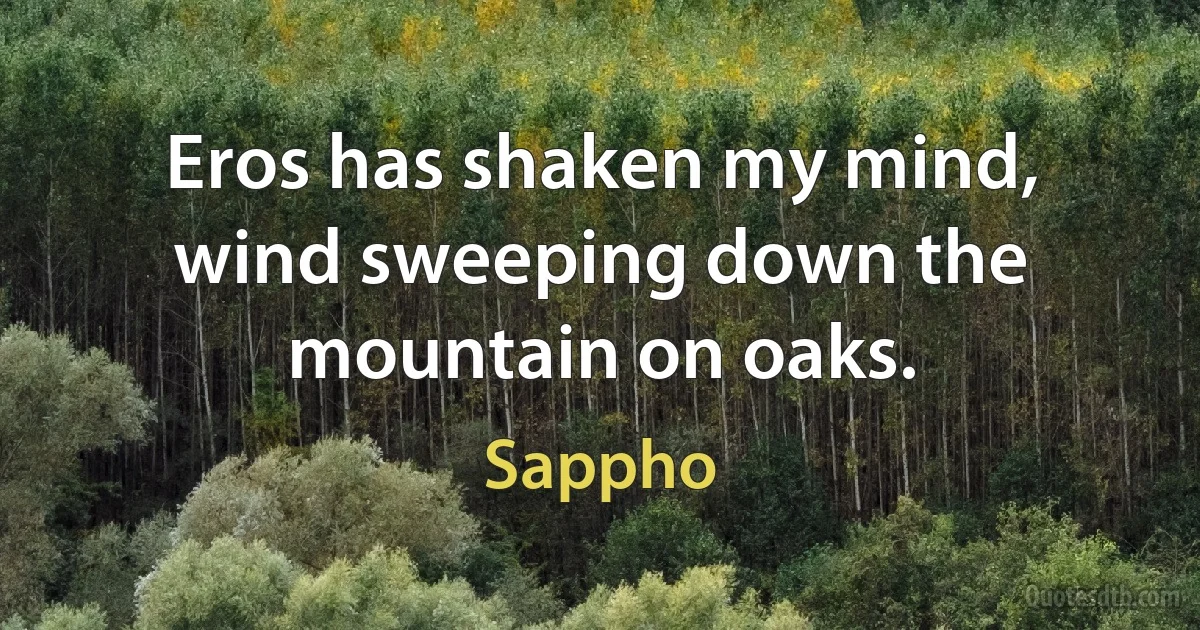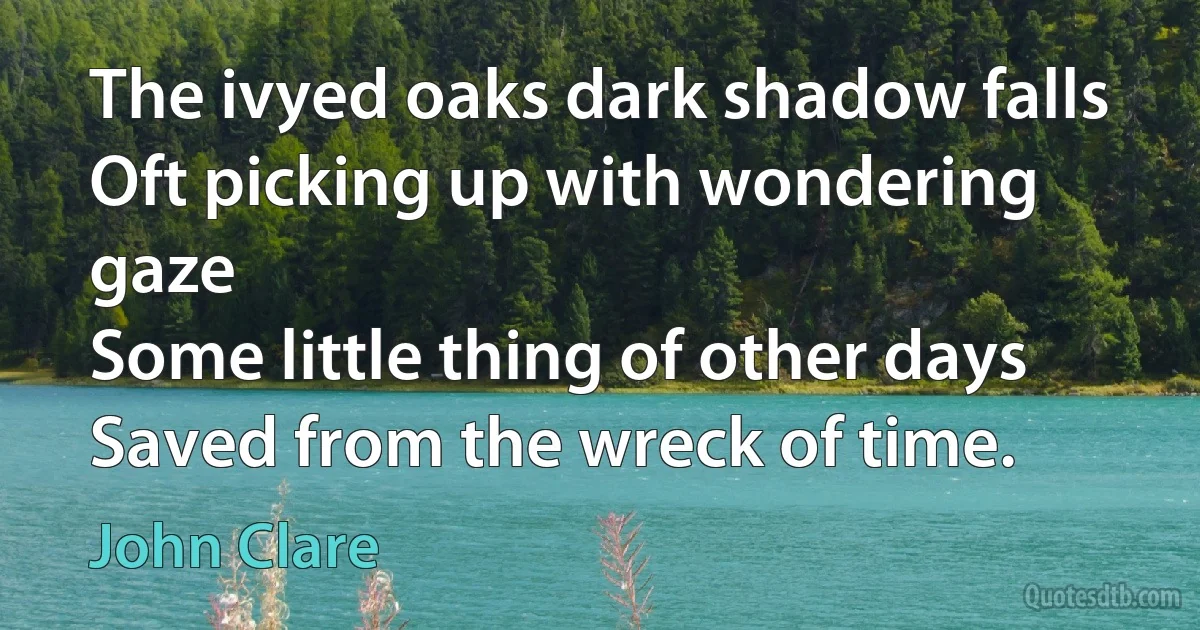Oaks Quotes
The Machine Age's commitment to cause and effect was the source of many dilemmas, including the one involving free will. At the turn of the century the American philosopher E. A. Singer, Jr., showed that science had, in effect, been cheating. It was using two different relationships but calling both cause and effect. He pointed out, for example, that acorns do not cause oaks because they are not sufficient, even though they are necessary, for oaks. An acorn thrown into the ocean, or planted in the desert or an Arctic ice cap does not yield an oak. To call the relationship between an acorn and an oak ‘probabilistic' or ‘non deterministic causality,' as many scientists did, was cheating because it is not possible to have a probability other than 1.0 associated with a cause; a cause completely determines its effect. Therefore, Singer chose to call this relationship ‘producer-product' and to differentiate it from cause-effect.

Russell L. Ackoff
He [the Dalai Lama] asked me for my participation and I rejected the plan to make a kind of sculpture there in this old way, to make in a kind of special place this special modern sculpture. I told him that my idea would be this time to plant seven thousand oaks in Kassel, seven thousand trees. And to mark every tree with a little stone, so that everybody after three, two, five or six hundred years can still see that in 1982 there was an activity. After the radical destruction of the forests here in Germany for all this technological nonsense, that there was an impulse that came in the same time, to plant seven thousand oaks. This is such a kind of activity during the Documenta [in Kassel], that has to do with the 'Documenta', but is a real other thing in the conventional understanding of art.

Joseph Beuys
Here I am quite alone amongst the Oaks and solitudes of Helmingham Park. I have taken quiet possession of the parsonage finding it quite empty. A woman comes up from the farm house (where I eat) and makes the bed; and I am left at liberty to wander where I please during the day. There are abundance of fine trees of all sort; through the place upon the whole affords good objects [rather] than fine scenery, but I can badly judge yet what I may have to shew You. I have made one of two... drawing that may be useful. I shall not come home yet.

John Constable
[T]he train system is so chronic now, that any journey you undertake by train in Britain is identical to the one taken by Omar Sharif in Doctor Zhivago; that's what it's like - the same drama and misery. Ancient, knackered rolling-stock limping painfully across the land, shuddering to a halt for no apparent reason, with the lights flickering on and off; everyone running up and down - 'What's going on? What's up ahead? I don't know... Is it Rod Steiger with the White Guard?' - desperate women in headscarves running alongside the carriages, throwing their babies into the train, shouting 'I'LL NEVER SEE PURLEY OAKS, BUT MY CHILD MIGHT!'

Linda Smith
Or he may study the hidden mind of the animal. A mixture of feelings and of thoughts, of dumb intelligences and of rudimentary affections, he reads the whole humble moral life of the beast in its eyes and in its movements.
He is even the confidant of nature. The trees, the plants talk to him like friends. The old gnarled oaks speak to him of their kindliness for the human race whom they protect beneath their sheltering branches. The flowers commune with him by the gracious swaying of their stalks, by the singing tones of their petals - each blossom amidst the grass is a friendly word addressed to him by nature.

Auguste Rodin
About the hill lay other islands small,
Where other rocks, crags, cliffs, and mountains stood,
The Isles Fortunate these elder time did call,
To which high Heaven they reigned so kind and good,
And of his blessings rich so liberal,
That without tillage earth gives corn for food,
And grapes that swell with sweet and precious wine
There without pruning yields the fertile vine.The olive fat there ever buds and flowers,
The honey-drops from hollow oaks distil,
The falling brook her silver streams downpours
With gentle murmur from their native hill,
The western blast tempereth with dews and showers
The sunny rays, lest heat the blossoms kill,
The fields Elysian, as fond heathen sain,
Were there, where souls of men in bliss remain.

Torquato Tasso
As when, upon a tranced summer-night,
Those green-rob'd senators of mighty woods,
Tall oaks, branch-charmed by the earnest stars,
Dream, and so dream all night without a stir,
Save from one gradual solitary gust
Which comes upon the silence, and dies off,
As if the ebbing air had but one wave.

John Keats



